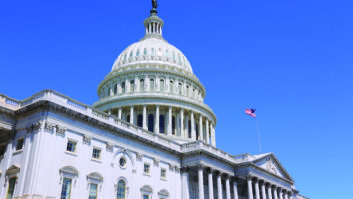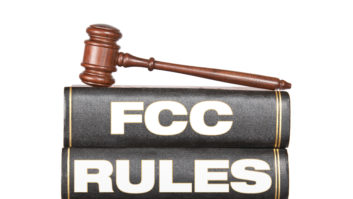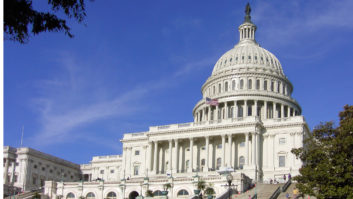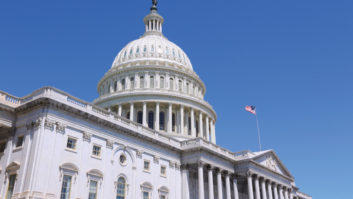There is a bit of clarity today to the complicated music licensing process playing out in Washington. The House Judiciary Committee this week unanimously passed the Music Modernization Act, which updates several key provisions of U.S. copyright law regarding music licensing.
The bill, which now awaits consideration by the full House of Representatives, would only impact digital streaming and leaves the fundamentals of over-the-air terrestrial music licensing intact, observers say.
Radio broadcasters would continue to pay webcasting rates set by the Copyright Royalty Board to SoundExchange, which then distributes the royalties to artists and copyright holders, for all online simulcasting of music.
[Read: NAB Says Yes to Music Modernization Deal]
The new bill creates a new single licensing entity, similar to SoundExchange, to administer the mechanical reproduction rights for all digital uses of musical compositions and distribute royalties, according to the National Music Publishers’ Association. The new blanket licensing system would cover digital music services and interactive streaming models offered by Spotify, Amazon, Pandora, Apple and iHeartMedia’s digital services.
Most important, observers say, is that Performance Right Organizations (PROs), such as BMI and ASCAP, and the National Association of Broadcasters are all on board with the new bill.
“The bill addresses some of the core issues facing songwriters, recording artists, producers, music publishers, record labels, and streaming services to benefit of the entire music ecosystem,” NAB said in a prepared statement. The broadcaster group also thanked the House Judiciary Committee for their work to “ensure that free, local, over-the-air broadcasters would not be harmed by this legislation.”
ASCAP pretty much concurred: “The reintroduction of the Music Modernization Act signals means we are one step closer to reforming our outdated music licensing system and providing songwriters a better future.”
Melodie Virtue, a principal with Garvey Schubert Barer in Washington, said the new bill could impact podcasting by broadcasters.
“This new single blanket license covers the rights of songwriters and composers to reproduce and distribute their music, which is what happens when music is included in a podcast,” Virtue said.
Another section of the Music Modernization Act also provides a public performance right for artists and music creators for pre-1972 recordings, which “ensures that record producers and sound engineers receive compensation for their work,” according to the House Judiciary Committee.
There was no federal copyright protection for sound recordings until Feb. 15, 1972. Prior to that, sound recordings were protected under a patchwork of state laws. That prompted several groups to seek performance royalties for the libraries of songs they controlled and sparked numerous lawsuits. It’s not immediately clear if the latest bill would end all current litigation, experts say.
Virtue says she expects the legislation to move ahead on the fast track. The U.S. Senate is expected to introduce a similar version of the bill possibly as soon as next month. If approved by both houses it would be on its way to Pres. Trump’s desk for his signature.







